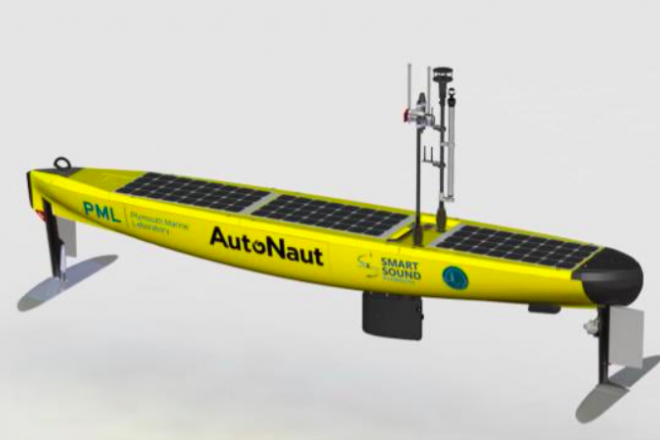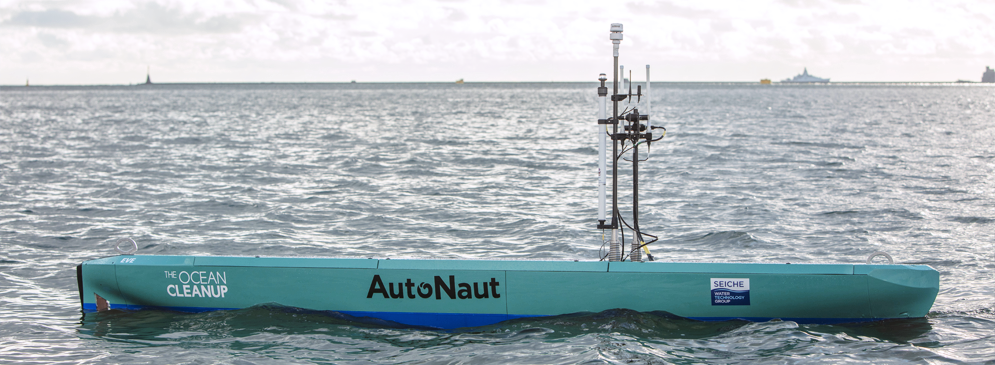An AutoNaut uncrewed surface vehicle (USV) equipped with a range of scientific sensors has been acquired by Plymouth Marine Laboratory. The state-of-the-art 5-metre craft is powered entirely by renewable energy and will be the first USV to regularly run scientific missions off the coast of the UK.
PML’s Dr James Fishwick, Head of Smart Sound Plymouth and Head of Technology for the Western Channel Observatory comments: “We are thrilled to be working with AutoNaut. The PML Pioneer, as our AutoNaut will be known, represents PML’s investment in marine science technology and will go ahead of the rest of our fleet in a pioneering journey of scientific discovery. It will be deployed extensively to deliver ground-breaking scientific research to the Western Channel Observatory and form a critical part of Smart Sound capabilities.”
The USV is outfitted with a range of meteorological and oceanographic parameters including: weather station, CTD, pH, nitrate, phosphate, irradiance, Chl, CDOM, turbidity, dissolved Oxygen, pCO2 and photosynthetic efficiency and rates. High-definition cameras will also be installed on the mast and sub-surface on the hull.
The AutoNaut USV uses no carbon fuel and is able to independently survey at sea for many weeks at a time. It is propelled by wave energy, using unique wave-foil technology, and has solar PV panels and battery pack to power onboard systems and sensors. The USV is pre-programmed to complete missions whilst carefully overseen from facilities in Plymouth.
Phil Johnston, Business Development at AutoNaut adds: “PML have been huge supporters since our earliest prototypes so it’s a real pleasure to now deliver our latest cutting-edge USV to them.”
The AutoNaut USV will help to support the testing and development of a wide range of new products and services for the marine sector. PML Pioneer will work alongside PML’s existing research vessels (Plymouth Quest and PML Explorer), a new Mobilis data buoy and will soon be joined by four ecoSUBs AUVs. PML’s AutoNaut USV is funded by Natural Environment Research Council / UK Research and Innovation (NERC / UKRI).


